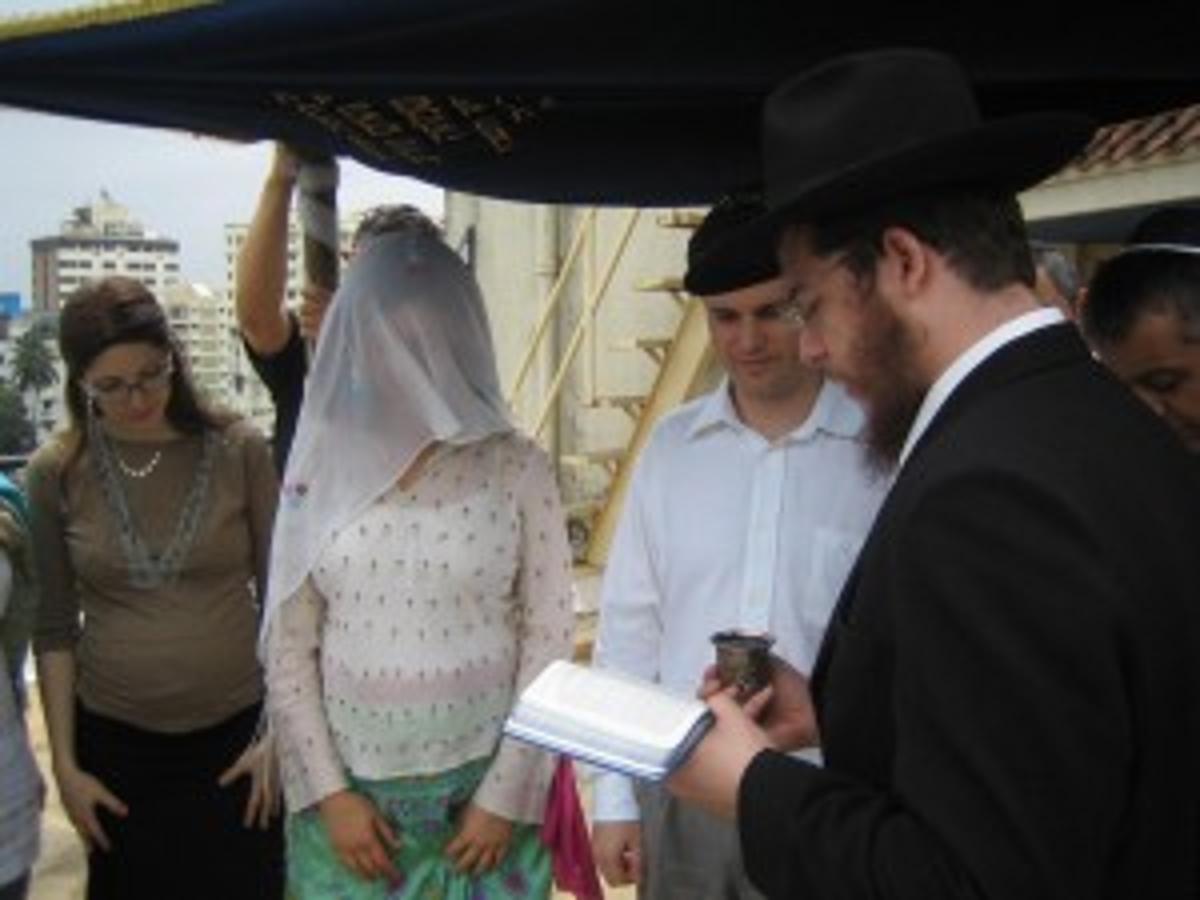On November 28, 2008, Rabbi Gavriel and Mrs. Rivkah Holtzberg were murdered in a horrific terrorist attack in Mumbai, India. They were the directors of Chabad-Lubavitch of Mumbai, and this Chabad House was a premeditated target.
Their toddler son, Moshe, was able to escape just before the Indian commandos came tearing through the building. Moshe, whose second birthday was just a few days prior, was saved by their nanny. His pants were bloodstained, but he was unharmed.
The Rebbetzin’s parents, the Rosenbergs, immediately traveled to Mumbai to bring their newly orphaned grandson home to family in Israel.
During shiva, a young Israeli woman approached Rivkah’s mother and handed her a small package. Curiously, Mrs. Rosenberg opened it. Inside was Rivkah’s engagement ring and also the finest Shabbos dress that she owned.
Rivkah’s mother asked in shock, “How did you get these?”
The young woman replied, “I was traveling in India and somehow got into trouble with the law and was thrown into jail. You can’t imagine how terrible that prison was, especially for a woman. The only silver lining was that the jail was completely disorganized and corrupt. I had the foresight to hide money on my body, and I bribed the police guard, who turned a blind eye while I escaped. I had nowhere to go, so I ran to Chabad. Everyone knows you can always go to Chabad.”
She continued, “Your daughter, a perfect stranger, took me in. She welcomed me into her home, fed me, and warned me that staying in India could be dangerous. She told me to leave the country immediately, or else I might never be able to get out.
Knowing that at the borders I might look suspicious, she gave me her diamond ring and best Shabbos clothing. She said they would leave me alone if I looked dignified with a ring on my finger. They would never assume I had escaped jail or think I was a ‘criminal’ if I looked the part.
Because of your daughter’s beautiful dress and diamond, my life was saved, and I made it back to Israel safely. And now I have come to give you Rivky’s dress and the ring that she lent to me.”
Mrs. Rosenberg took the ring and dress in her hands and sadly reminisced, “Sometime before her death, I saw Rivky and noticed that she wasn’t wearing her engagement ring. When I asked her about it, she told me, ‘Zeh b’shlichus.’ It’s on a mitzvah mission.”
This story now serves as its own mitzvah mission, inspiring others all over the world to look at those who need help, see what they need, and stretch themselves to give accordingly.
We are not all blessed with the faith or compassion to willingly give up precious jewelry to help a random stranger in distress. Instead, we can start small and begin by noticing the specific needs of other people around us.
Rivky looked at the girl and saw what she needed. When we give tzedakah, we must consider exactly how we can help the recipient.
There is a pasuk in the Torah that states, “You shall not harden your heart or close your hand against your destitute brother.”
Why would the Torah redundantly add, “Don’t close your hand against your brother?” It seems obvious that if a person hardens his heart, his hand will be closed to any requests.
The Vilna Gaon beautifully comments on this by discussing the difference between a closed fist and an open hand. When one’s hand is closed, his fingers appear to be of equal length. But when one’s hand is open, you suddenly see that the fingers are of different sizes.
The same is true of tzedakah. No two people or situations are alike. Everyone has unique needs. Our obligation to help is reflective of opening up our hand. Both aspects of the pasuk are necessary, and we should consider this when opportunities for tzedakah present themselves.
May the soul of Rivka Holtzberg and others who have given so selflessly serve as an inspiration to us all.

Sarah Pachter is a dynamic, motivational speaker who has lectured throughout the US and Israel. For the past fifteen years Sarah has taught women of all ages and levels of Jewish observance, drawing in large crowds with her innovative and personal touch.
Sarah has been featured on the Radio, is a regular columnist, and a freelance writer for the Jewish Press, Aish.com, Ami, The Jewish Home as well as many other publications. She has authored Small Choices Big Changes published by Targum Press. She currently resides in Los Angeles with her husband and four children.

